Donald Trump's decisive victory in the 2024 US Presidential Election signals that the US-China trade war will continue to escalate?
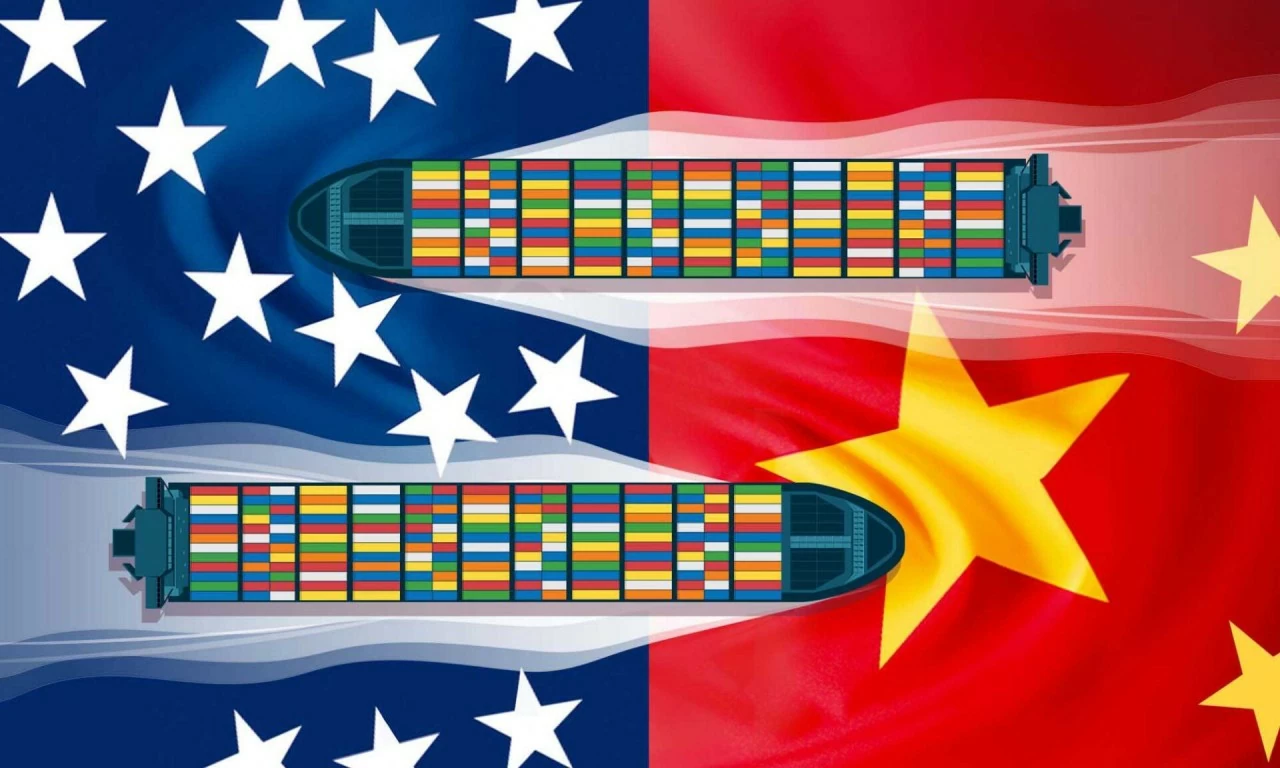 |
| The US-China trade war is far from over, it is still going on, both boiling and smoldering. (Source: University of Rochester illustration) |
It has been nearly four years since Mr. Trump left the White House and now, when he has returned, the US-China trade war has never cooled down, when the current administration of President Joe Biden has no intention of ending the ongoing tensions that are both boiling and simmering between the two largest economies in the world.
A new US-China trade war?
It must be reiterated that the US-China trade war has never ended, since it began in 2018, when the 45th US President - Donald Trump introduced a series of tariffs targeting hundreds of billions of dollars of Chinese goods imported into the US, citing what he called unfair trade policies and intellectual property theft.
Trump, who once called himself “Tariff Man” and described tariffs as “the most beautiful word in the dictionary,” continued to threaten to impose tariffs of 10% or more on all imports and up to 60% on Chinese goods in particular before entering the White House for a second term.
These additional measures could be taken under Section 301 of the US Trade Act of 1974, which allows the US to investigate and respond to foreign trade practices deemed unfair or harmful to national interests.
Asked how Beijing might respond to Mr Trump's potential full-scale tariffs, Chinese Foreign Ministry spokeswoman Mao Ning told reporters she would "not answer hypothetical questions", but added that "no one wins in a trade war and the world will not benefit from it".
Bonnie Glaser, executive director of the Indo- Pacific Program at the German Marshall Fund of the United States, told Newsweek that while she hopes the US president-elect will deliver on his campaign promises, "it remains to be seen whether they will be able to use a broader strategy to win the strategic competition with China."
Meanwhile, Wu Xinbo, dean of the Institute of International Studies at Fudan University in Shanghai, echoed this view and pointed out the impracticality of the US imposing a large-scale tariff increase. He said, "Whether tariffs on Chinese goods will reach 60% or not depends on the specific types of goods the US imports from China. In addition, the tariff rate applied by the US may not be too high."
Trump's proposal could negatively impact his own businesses, Newsweek reported, since many of his products are manufactured in other countries, including China. Trump has promoted tariffs as a means to reduce taxes and pay down the national debt.
Mr Trump is said to want to push tariffs as a means of cutting taxes and paying off the national debt.
However, a recent analysis by the Washington, D.C.-based Urban-Brookings Tax Policy Center found that if Trump’s proposed tariffs were implemented, which could result in about $3.7 trillion in total tax revenue, the actual increase in federal taxes would be nearly $2.8 trillion over the next decade, because the tariffs would reduce other taxes.
Additionally, “Mr. Trump’s tariffs would significantly increase the price of imported goods because they would be largely passed on to consumers. That would reduce both inflation-adjusted domestic income and income tax revenue,” the Urban-Brookings study said.
Earlier this year, the Biden administration opted to maintain tariffs imposed during Trump's first term on about $300 billion worth of Chinese products, prompting the Chinese Embassy to denounce the move as "unilateralism and protectionism."
Tariffs on Chinese-made solar panels, semiconductors, and medical supplies—like masks and surgical gloves—were raised to 50% from 25%. Tariffs on lithium-ion batteries were raised to 25% from 7.5%, and tariffs on Chinese electric vehicles—a sector in which Beijing dominates but has little market share in the U.S.—were quadrupled from 25% to 100%.
Has China changed?
On the Chinese side, even as President Xi Jinping was quick to congratulate the US President-elect, analysts still warned of a more tense confrontation between the two superpowers, risking opening a new era of competition in Washington.
“Many people in China are preparing for some upheaval or storm, but no one knows what it is,” said international relations professor Tang Shiping, at Fudan University in Shanghai.
Although the US under President Joe Biden still maintains many of Trump's first-term policies toward Beijing, including tariffs on Chinese goods, Washington has somewhat toned down its harsh tone toward Beijing and made efforts to restart bilateral communication channels.
However, Mr. Trump's promises to voters during the election campaign to strengthen the harsh economic policies he pursued during his first term have led observers to believe that US-China relations are unlikely to have a smooth start.
Of course, there are those who are worried about the prospect of a new, harsher and broader US-China trade war – a new trade war could not come at a worse time for Beijing, amid potential signs of a long-term economic slowdown. The second-largest economy is struggling to recover from the pandemic and is unlikely to meet its 5% growth target. The real estate sector is in crisis, the banking system is suffering an incalculable loss, local government debt is in crisis and unemployment has skyrocketed, especially among the younger demographic.
"Given China's current economic situation, a new trade war or more comprehensive efforts to isolate it would pose a much more serious threat to its economic competitiveness," said Tong Zhao, a senior fellow at the Carnegie Endowment for International Peace in Washington.
But many people do not share the above opinion, they think that Beijing is now better prepared.
Some analysts say that China's economy remains dependent on exports, making tariffs more vulnerable, but it is less dependent on the US market and increasingly aiming for self-sufficiency.
China’s leaders are trying to boost self-reliance and protect the country’s economy from external risks such as US tariffs. China’s Guancha newspaper wrote in a recent commentary that Beijing should thank Mr Trump for “strengthening our determination, will and self-reliance in key areas”.
These days, in comments about how US President-elect Donald Trump selected his new cabinet, many people believe that in his second term, he got to work very quickly... Quickly forming a young, fresh administration and quickly wanting to realize plans that may have been left unfinished in his first term.
...And the US-China trade war is also something Mr. Trump has left unfinished.
Source: https://baoquocte.vn/my-trung-quoc-ong-trump-threatens-to-make-a-new-trade-war-that-is-dang-do-nhung-bac-kinh-nay-da-khac-roi-293817.html


![[Photo] President Luong Cuong presents the 40-year Party membership badge to Chief of the Office of the President Le Khanh Hai](https://vphoto.vietnam.vn/thumb/1200x675/vietnam/resource/IMAGE/2025/5/19/a22bc55dd7bf4a2ab7e3958d32282c15)
![[Photo] General Secretary To Lam attends the conference to review 10 years of implementing Directive No. 05 of the Politburo and evaluate the results of implementing Regulation No. 09 of the Central Public Security Party Committee.](https://vphoto.vietnam.vn/thumb/1200x675/vietnam/resource/IMAGE/2025/5/19/2f44458c655a4403acd7929dbbfa5039)

![[Photo] Close-up of Tang Long Bridge, Thu Duc City after repairing rutting](https://vphoto.vietnam.vn/thumb/1200x675/vietnam/resource/IMAGE/2025/5/19/086736d9d11f43198f5bd8d78df9bd41)
![[Photo] Panorama of the Opening Ceremony of the 43rd Nhan Dan Newspaper National Table Tennis Championship](https://vphoto.vietnam.vn/thumb/1200x675/vietnam/resource/IMAGE/2025/5/19/5e22950340b941309280448198bcf1d9)







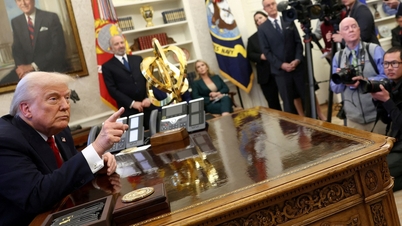

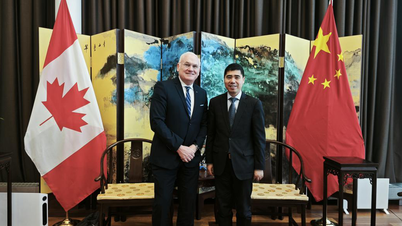

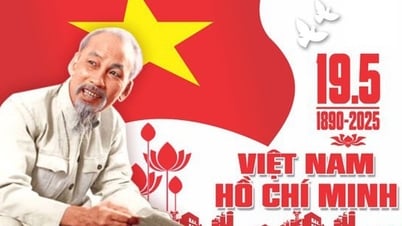

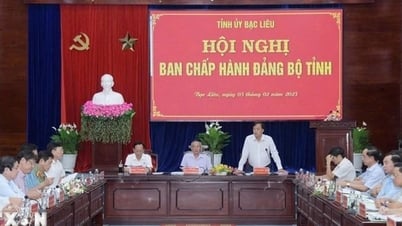
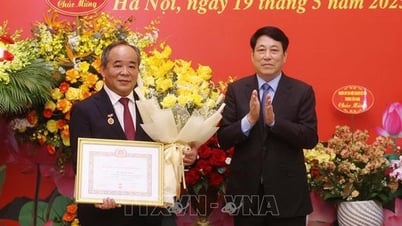

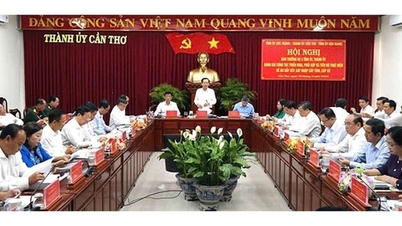
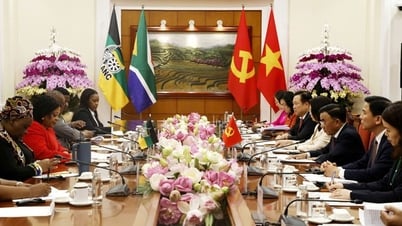










![[Photo] Prime Minister Pham Minh Chinh inspects the progress of the National Exhibition and Fair Center project](https://vphoto.vietnam.vn/thumb/1200x675/vietnam/resource/IMAGE/2025/5/19/35189ac8807140d897ad2b7d2583fbae)



















































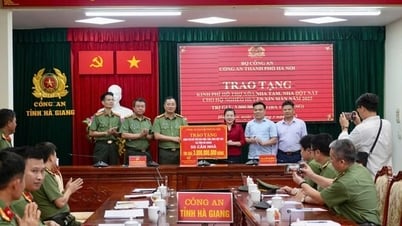






![[VIDEO] - Enhancing the value of Quang Nam OCOP products through trade connections](https://vphoto.vietnam.vn/thumb/402x226/vietnam/resource/IMAGE/2025/5/17/5be5b5fff1f14914986fad159097a677)





Comment (0)